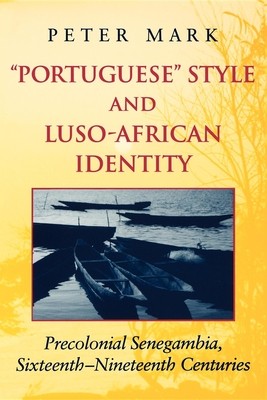
- Išsiųsime per 10–14 d.d.
- Autorius: Peter A Mark
- Leidėjas: Indiana University Press
- ISBN-10: 0253215528
- ISBN-13: 9780253215529
- Formatas: 15.1 x 24 x 1.8 cm, minkšti viršeliai
- Kalba: Anglų
- Extra -25 % nuolaida šiai knygai su kodu: ENG25
Atsiliepimai
Aprašymas
In this detailed history of domestic architecture in West Africa, Peter Mark shows how building styles are closely associated with social status and ethnic identity. Mark documents the ways in which local architecture was transformed by long-distance trade and complex social and cultural interactions between local Africans, African traders from the interior, and the Portuguese explorers and traders who settled in the Senegambia region. What came to be known as "Portuguese" style symbolized the wealth and power of Luso-Africans, who identified themselves as "Portuguese" so they could be distinguished from their African neighbors. They were traders, spoke Creole, and practiced Christianity. But what did this mean? Drawing from travelers' accounts, maps, engravings, paintings, and photographs, Mark argues that both the style of "Portuguese" houses and the identity of those who lived in them were extremely fluid. "Portuguese" Style and Luso-African Identity sheds light on the dynamic relationship between identity formation, social change, and material culture in West Africa.
EXTRA 25 % nuolaida su kodu: ENG25
Akcija baigiasi už 6d.12:58:02
Nuolaidos kodas galioja perkant nuo 10 €. Nuolaidos nesumuojamos.

- Autorius: Peter A Mark
- Leidėjas: Indiana University Press
- ISBN-10: 0253215528
- ISBN-13: 9780253215529
- Formatas: 15.1 x 24 x 1.8 cm, minkšti viršeliai
- Kalba: Anglų Anglų
In this detailed history of domestic architecture in West Africa, Peter Mark shows how building styles are closely associated with social status and ethnic identity. Mark documents the ways in which local architecture was transformed by long-distance trade and complex social and cultural interactions between local Africans, African traders from the interior, and the Portuguese explorers and traders who settled in the Senegambia region. What came to be known as "Portuguese" style symbolized the wealth and power of Luso-Africans, who identified themselves as "Portuguese" so they could be distinguished from their African neighbors. They were traders, spoke Creole, and practiced Christianity. But what did this mean? Drawing from travelers' accounts, maps, engravings, paintings, and photographs, Mark argues that both the style of "Portuguese" houses and the identity of those who lived in them were extremely fluid. "Portuguese" Style and Luso-African Identity sheds light on the dynamic relationship between identity formation, social change, and material culture in West Africa.


Atsiliepimai